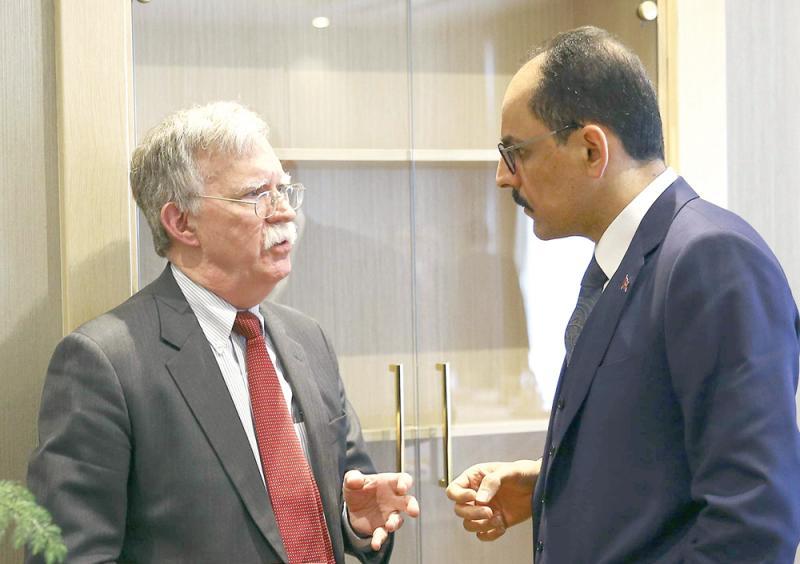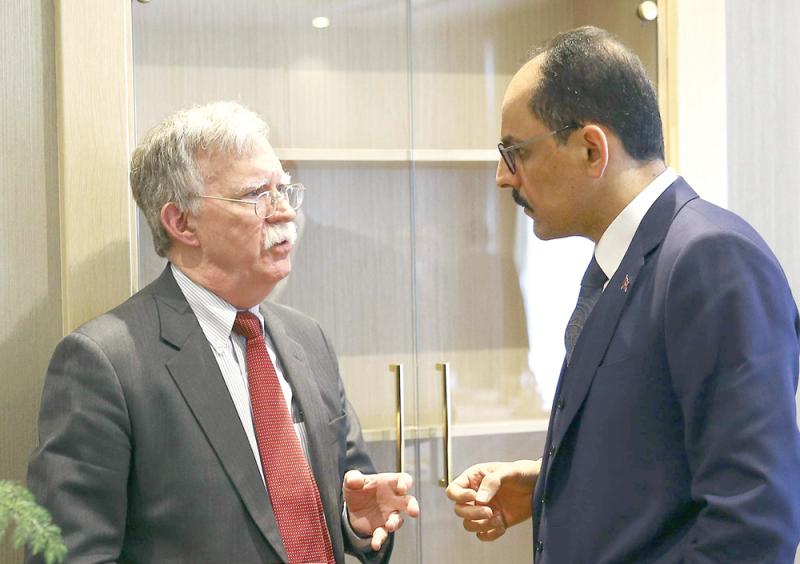Is Trump’s America a force for good in the Middle East?
“America is a force for good in the Middle East,” US Secretary of State Mike Pompeo declared in his much-advertised Cairo address. He offered criticism of past American leaders for being “absent too much” and showing “reluctance to wield influence.”
Pompeo said: “When America retreats, chaos often follows. When we neglect our friends, resentment builds.”
It was a reference to Iran’s conflict with key Arab allies of the United States. US national security adviser John Bolton delivered much the same message to other key US allies in the Middle East.
Those countries have every reason to be happy with the US secretary of state’s address and the national security adviser’s assurances but they also have every reason to doubt whether Pompeo and Bolton speak for their mercurial and unpredictable boss, US President Donald Trump.
How can anyone believe the promises of the secretary of state and the national security adviser when placed alongside the statements of the US president?
Examples abound: Pompeo said the United States remains committed to the fight against the Islamic State (ISIS) in Syria but, in December, Trump declared a US withdrawal from Syria was imminent. On January 11, a spokesman for the US-led military coalition in Syria said “deliberate” troop withdrawal was under way. Bolton assures Washington’s Kurdish allies in Syria that it will not abandon them to their fate and Pompeo reiterates his well-known position that Iranian and allied forces “must leave Syria” but, very recently, Trump declared the Iranians “can do what they want” in Syria.
To add insult to injury, the US president said his Turkish counterpart, Recep Tayyip Erdogan, will take care of the situation in Syria. Erdogan cannot be considered a friend of Syrian Kurds so the prospect outlined by Trump would hardly be a source of consolation to them.
Pompeo criticised the Obama administration for forsaking the Iranian people in the face of the oppressive Islamic Republic but Trump has, on more than one occasion, declared his readiness to reach a deal with the regime in Tehran. Such a deal would not include the human rights of the Iranian people.
With such discrepancies and stark contradictions on policy at the highest levels of the US government, one can hardly blame Ayatollah Ali Khamenei for perceiving American statesmen as “first-class fools.”
Two years into Trump’s presidential term, his administration has yet to craft a coherent Middle East policy so Washington can avoid sending mixed signals. In the absence of a comprehensive policy, Washington’s friends and foes alike may pursue their own agendas. That would contribute to further regional instability.
ISIS, assured of Trump’s inclination to disentangle the United States from the Middle East, entrenches its military presence in Syria. Tehran’s allied Lebanese Hezbollah militia keeps Lebanon in its clutches. Hezbollah also keeps a front open against Israel. The war in Yemen continues despite diplomatic talks. All the while the Saudis, Emiratis and Israelis band ever closer to try to counterbalance the threat from Tehran.
In the absence of American leadership, the Middle Eastern “self-help system” descended into proxy wars but did avoid a greater catastrophe. The region avoided direct wars between the regional great powers but should Washington’s zigzag course continue, there is no guarantee that such a great-power war can be avoided in the future.
And one can reasonably doubt whether Trump’s America is a force for good in the Middle East region.
Ali Alfoneh is a Visiting Scholar at the Arab Gulf States Institute in Washington.
This article was originally published in The Arab Weekly.







